110 years of fighting for the underdog
Before the Lost Dogs’ Home opened in 1913, Melbourne was a grim place to be for stray animals.
Not only did Melbourne City Council poison or drown any stray dogs found on the street, many unwanted animals also ended up at Melbourne University for experimental testing.
Lost Dogs’ Home spokesperson Suzana Talevski said that the opening of the North Melbourne shelter was a pivotal moment for animal welfare in Victoria.
“People’s attitudes to pet ownership have changed drastically over the past few decades– they appreciate that pets are family members for life,” Ms Talevski said.
“In the past many people thought of them as property, which was also legally the case until 1970.”
The shelter, which was created by a group of locals concerned about the treatment of strays in Melbourne, opened on Gracie Street in North Melbourne in February 1913 and has remained on that site ever since.
As the largest animal shelter in the Southern Hemisphere, the home works with 18 local councils to take in thousands of lost, stray or surrendered animals every year.
Ms Talevski said that the shelter took in close to 17,000 animals last year that were “in desperate need of help”.
“The animals arrive via various means such as council pick-ups, our ambulance vehicles and individual surrenders,” Ms Talevski said.
“We never know what pets are about to show up on our doorstep, but our staff are ready to provide compassion and care to every one of them, no matter what their breed, age, health or temperament.”
With a team of 180 staff across the North Melbourne and Cranbourne sites, and hundreds of community volunteers, the animals are well cared for while they wait for their new homes.
Aside from food, warm baths and shelter, the home also offers veterinary treatment and foster services for animals who aren’t ready to be adopted yet.
Shelter supervisor Amanda Smith said that for many of the animals the main focus is to provide individualised training programs to get them ready for “the big, bad world” again.
“We have dedicated and experienced trainers who work with the dogs all day to provide enrichment activities and individualised training programs,” Ms Smith said.
“Some of the animals are fearful, have had some trauma in their lives, or have separation anxiety so we work with them to improve that.
“These animals are really the underdogs which need a second chance at life, so we’re giving them that.”
Ms Smith also said that outside of the shelter, the Lost Dog’s Home also offers behavioural training classes for pets in the community.
“The Pet Squad service is our specialised training department to help owners with any behavioural issues their pet might be having,” Ms Smith said.
“We have individual and group classes with qualified trainers, and also have puppy and kitten schools.”
Although small breeds and young animals are often quickly adopted, older and larger animals can often be left behind.
Ms Talevski said that the shelter was currently offering reduced adoption fees for bigger breeds to incentivise people to consider taking in a bigger dog.
“Big breeds like Theodore here often have a tough time being adopted because there’s a misconception that they’re harder to take care of,” Ms Talevski said.
“If you compare a Greyhound, which is a couch potato, to a tiny Jack Russell which can often be quite a handful, you can see it’s just not the case.”
Currently the Lost Dogs’ Home has about 850 animals in their care, with 35 dogs and 77 cats available for adoption.
Aside from making a donation, which the shelter relies heavily on to continue their important work, the community can also donate blankets and pet food which the shelter is always needs.
Ms Talevski said that making the animals feel as comfortable, supported and loved as possible while they were at the Lost Dogs’ Home was the main priority.
“As Dorothy once said, there’s no place like home,” Ms Talevski said.
“But we do the best we can while we find that home for them.” •
For more information:

Jo Ryan unveils Ordered Chaos at Blender Studios


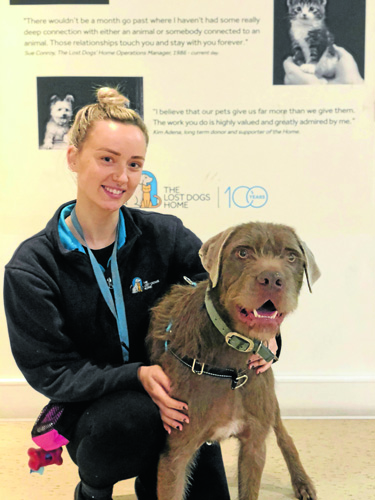
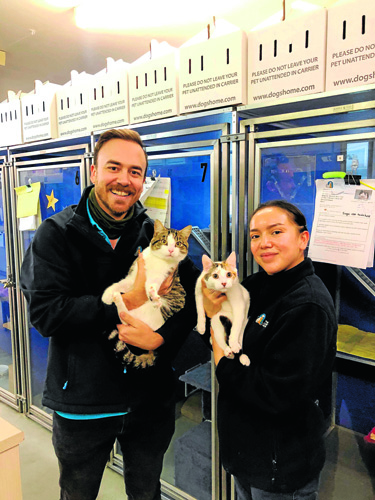
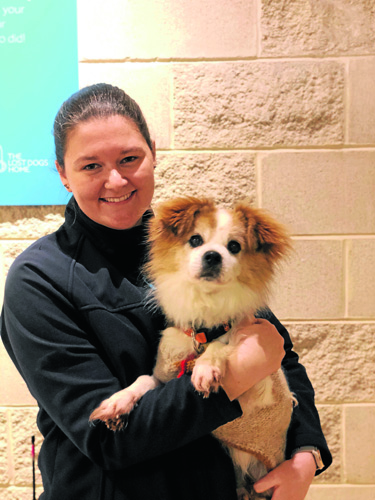
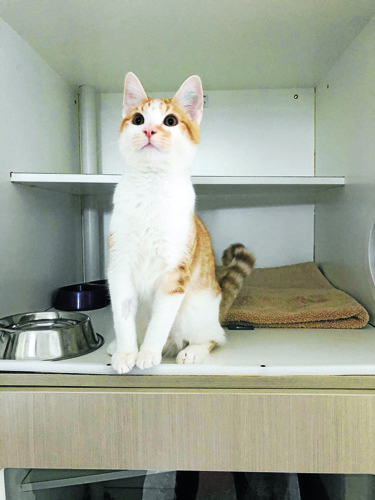
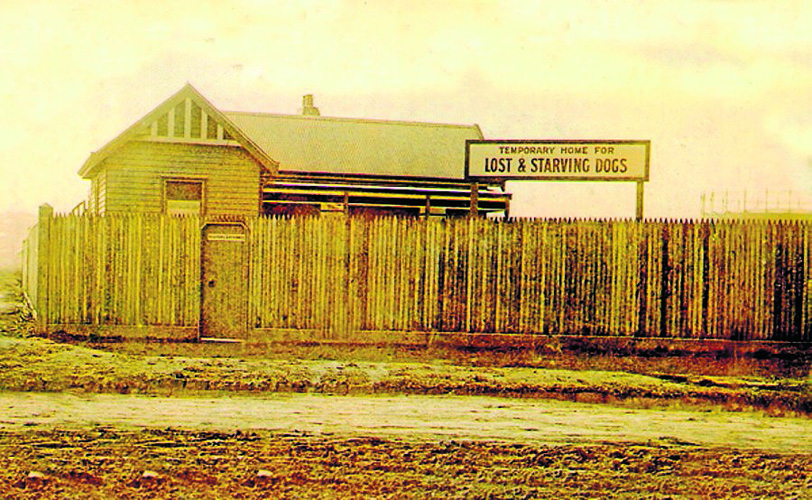

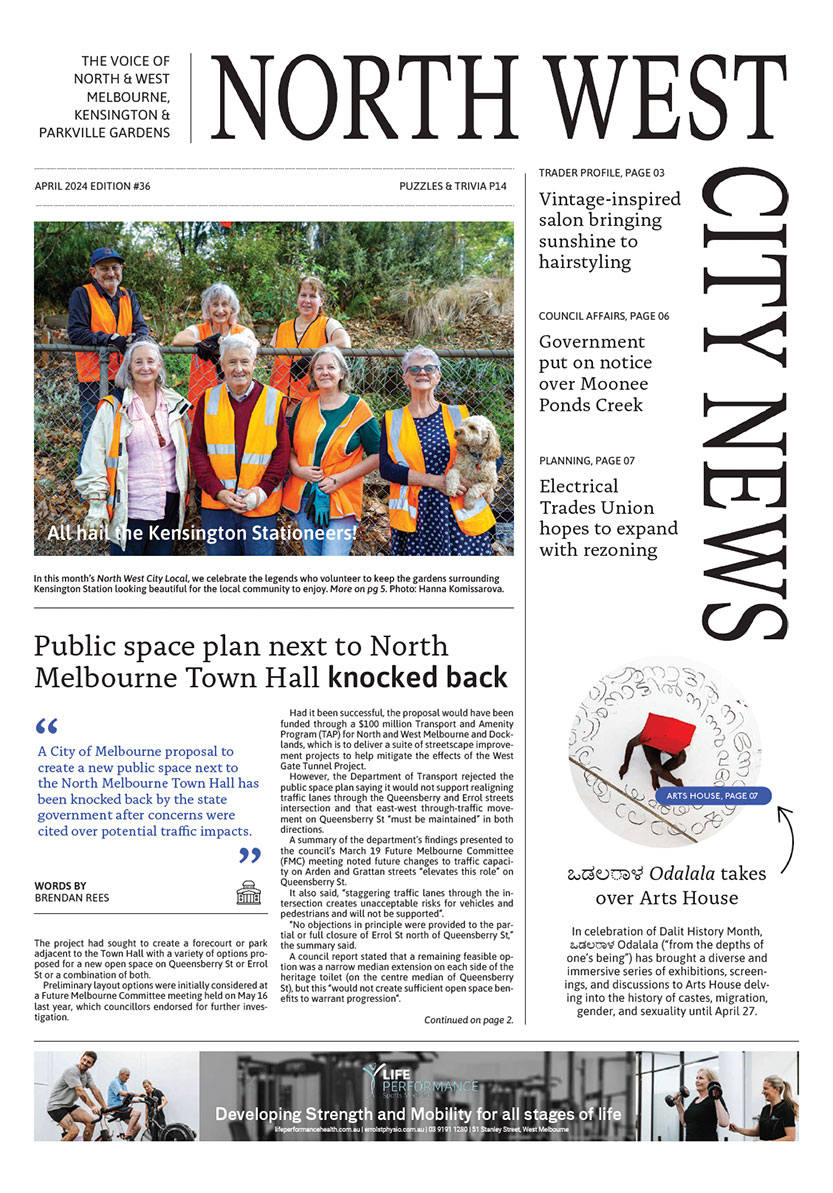 Download the Latest Edition
Download the Latest Edition